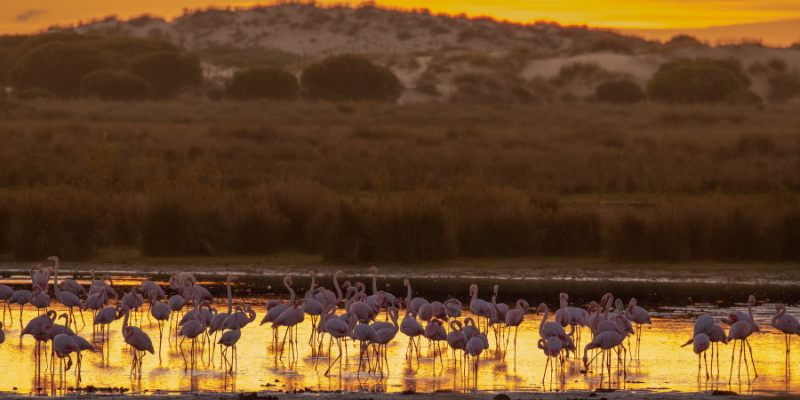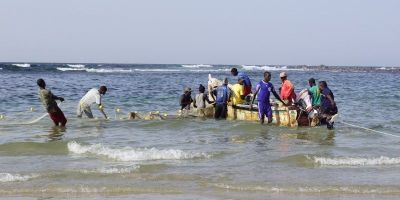World heritage wetland site threatened by strawberry farming

Strawberry lovers might want to check the provenance of their fruit this summer following controversy about a new farming bill which could cause the devastation of an iconic Spanish wetland.
Scientists from the University of Leeds and the Spanish National Research Council say urgent protection is needed for the fragile Doñana wetlands in Andalusia as the result of the bill which sanctions illegal strawberry production in its immediate vicinity.
The bill, which was approved by the regional government without any parliamentary debate, allows intensive irrigated strawberry farming on land originally devoted to forestry or rain-fed agriculture.
80% of the strawberries grown in the region are exported, with the UK and Germany receiving half of these exports.
Professors Luis Santamaría from the Doñana Biological Station in Spain, and Julia Martin-Ortega from the University of Leeds’ Sustainability Research Institute, have raised their concerns in a paper published today in the Nature Water journal.
Scientific evidence is unequivocal: Doñana’s ecosystem is in danger.
Doñana is one of the largest wetlands in Europe and hosts up to half a million migratory birds as well as being home to 50 species of waterbirds and the highly endangered Iberian lynx.
Extensive research shows the vegetation and soils are severely degraded, the number of temporary ponds have been reduced by over half, and the waterbirds are decreasing in numbers.

Luis Santamaría said: “Although Doñana still has outstanding biodiversity that justifies its conservation, it has been subject to relentless degradation over decades, which is reaching a point of-no-return.
“Instead of taking the decisive actions required to save it, the current Bill marks the return of outdated, unsustainable policies that will accelerate its end.”
Spain was recently threatened with sanctions as a result of the Bill, in what was an unprecedented confrontation of the regional Andalusian government with the European Commission.
The Bill also poses a reputational and economic risk, with major European retailers having already voiced concerns about the environmental impact of their Spanish imports. A campaign is already underway by the German pressure group Campact, calling on retailers to stop selling so called “dry strawberries”.
Scientific evidence
Professor Julia Martin-Ortega said: “This Bill may compromise the past endeavours by legal strawberry producers who have made an effort to reduce water consumption and agro-chemical use in the area.
“We can only hope that reactions against this Bill will trigger new conservation policy. It is extremely important that any decision moving forward is taken on the basis of scientific evidence, which in this case is unequivocal: Doñana’s ecosystem is in danger.”
Doñana is one of the ‘Knowledge Sites’ within the ambitious EU-funded project WaterLANDS which aims to restore wetland sites throughout Europe and lay the foundations for protection across wider areas.
Dr Shane Mc Guinness, of University College Dublin and Project Co-Coordinator of WaterLANDS, said: "Because of their support for biodiversity, water, carbon and culture, wetlands are extremely important to humans and nature alike.
“Properly valuing these areas is therefore more important than ever and their long-term protection should always be prioritised over short-term economic gain.”
Further information
Top image of strawberries: Adobe stock
More details about the crisis facing Doñana are available in the Nature Water Journal
For media enquiries and interview requests, contact Kersti Mitchell via k.mitchell@leeds.ac.uk




